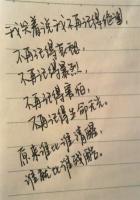As when those hinds that were transformed to frogs Railed at Latona's twin-born progeny, Which after held the sun and moon in fee."The persecution which Latona experienced from Juno is alluded to in the story. The tradition was that the future mother of Apollo and Diana, flying from the wrath of Juno, besought all the islands of the Aegean to afford her a place of rest, but all feared too much the potent queen of heaven to assist her rival.
Delos alone consented to become the birthplace of the future deities. Delos was then a floating island; but when Latona arrived there, Jupiter fastened it with adamantine chains to the bottom of the sea, that it might be a secure resting place for his beloved. Byron alludes to Delos in his Don Juan:--"The isles of Greece! The isles of Greece!
Where burning Sappho loved and sung, Where grew the arts of war and peace, Where Delos rose and Phoebus sprung!"PHAETON
Epaphus was the son of Jupiter and Io. Phaeton, child of the Sun, was one day boasting to him of his high descent and of his father Phoebus. Epaphus could not bear it. "Foolish fellow,"said he "you believe your mother in all things, and you are puffed up by your pride in a false father." Phaeton went in rage and shame and reported this to his mother, Clymene. "If," said he, "I am indeed of heavenly birth, give me, mother, some proof of it, and establish my claim to the honor." Clymene stretched forth her hands towards the skies, and said, "I call to witness the Sun which looks down upon us, that I have told you the truth.
If I speak falsely, let this be the last time I behold his light.
But it needs not much labor to go and inquire for yourself; the land whence the sun rises lies next to ours. Go and demand of him whether he will own you as a son" Phaeton heard with delight.
He travelled to India, which lies directly in the regions of sunrise; and, full of hope and pride, approached the goal whence the Sun begins his course.
The palace of the Sun stood reared aloft on columns, glittering with gold and precious stones, while polished ivory formed the ceilings, and silver the doors. The workmanship surpassed the material; for upon the walls Vulcan had represented earth, sea and skies, with their inhabitants. In the sea were the nymphs, some sporting in the waves, some riding on the backs of fishes, while others sat upon the rocks and dried their sea-green hair.
Their faces were not all alike, nor yet unlike, but such as sisters' ought to be. The earth had its towns and forests and rivers and rustic divinities. Over all was carved the likeness of the glorious heaven; and on the silver doors the twelve signs of the zodiac, six on each side.
Clymene's son advanced up the steep ascent, and entered the halls of his disputed father. He approached the paternal presence, but stopped at a distance, for the light was more than he could bear.
Phoebus, arrayed in a purple vesture, sat on a throne which glittered as with diamonds. On his right hand and his left stood the Day, the Month, and the Year, and, at regular intervals, the Hours. Spring stood with her head crowned with flowers, and Summer, with garment cast aside, and a garland formed of spears of ripened grain, and Autumn, with his feet stained with grape juice, and icy Winter, with his hair stiffened with hoar frost.
Surrounded by these attendants, the Sun, with the eye that sees every thing, beheld the youth dazzled with the novelty and splendor of the scene, and inquired the purpose of his errand.
The youth replied, "Oh, light of the boundless world, Phoebus, my father, if you permit me to use that name, give me some proof, I beseech you, by which I may be known as yours." He ceased; and his father, laying aside the beams that shone all around his head, bade him approach, and embracing him, said, "My son, you deserve not to be disowned, and I confirm what your mother has told you. To put an end to your doubts, ask what you will, the gift shall be yours. I call to witness that dreadful lake, which I never saw, but which we gods swear by in our most solemn engagements." Phaeton immediately asked to be permitted for one day to drive the chariot of the sun. The father repented of his promise; thrice and four times he shook his radiant head in warning. "I have spoken rashly," said he; "only this request I would fain deny. I beg you to withdraw it. It is not a safe boon, nor one, my Phaeton, suited to your youth and strength.
Your lot is mortal, and you ask what is beyond a mortal's power.
In your ignorance you aspire to do that which not even the gods themselves may do. None but myself may drive the flaming car of day; not even Jupiter, whose terrible right arm hurls the thunder bolts. The first part of the way is steep, and such as the horses when fresh in the morning can hardly climb; the middle is high up in the heavens, whence I myself can scarcely, without alarm, look down and behold the earth and sea stretched beneath me. The last part of the road descends rapidly, and requires most careful driving. Tethys, who is waiting to receive me, often trembles for me lest I should fall headlong. Add to all this, the heaven is all the time turning round and carrying the stars with it. I have to be perpetually on my guard lest that movement, which sweeps everything else along, should hurry me also away. Suppose I should lend you the chariot, what would you do? Could you keep your course while the sphere was revolving under you? Perhaps you think that there are forests and cities, the abodes of gods, and palaces and temples on the way. On the contrary, the road is through the midst of frightful monsters.














